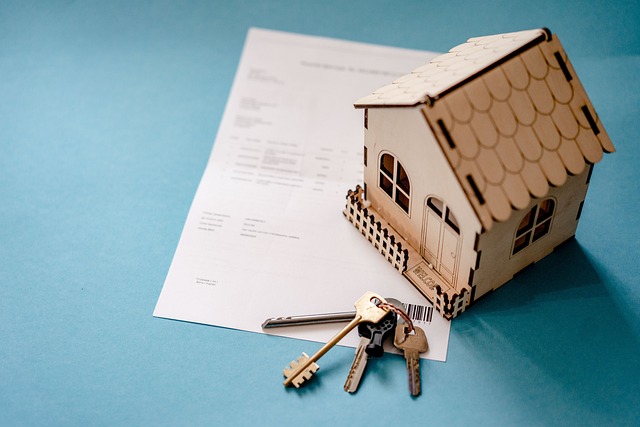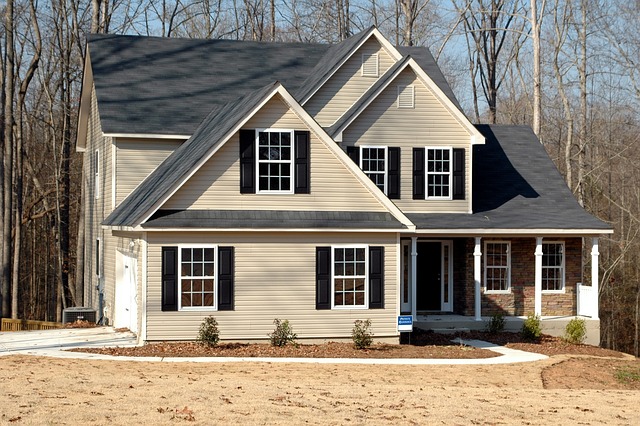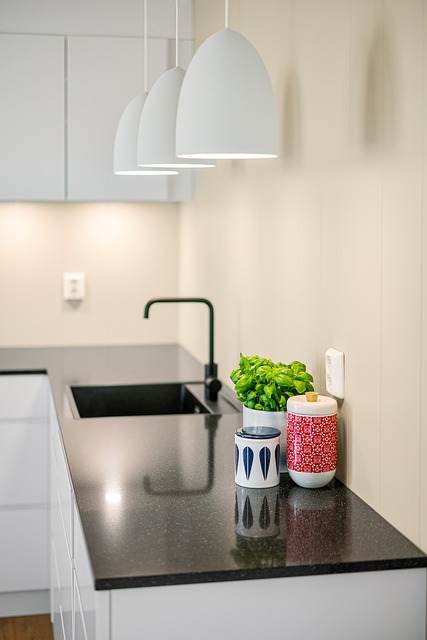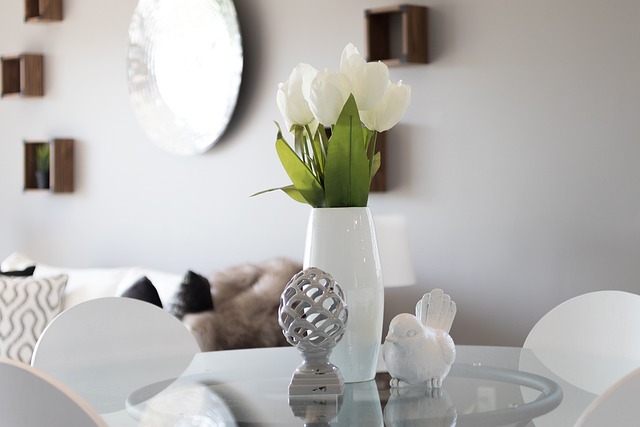The Choa Chu Kang Executive Condominium (EC) market in Singapore offers a unique housing option that differs from both public housing and private condominiums. Prospective buyers must understand the specific legal framework governing ECs, including eligibility criteria set by the Housing & Development Board (HDB), which only allows individuals who have never owned a flat to purchase an EC. After residing in the unit for five years, owners may sell it to either Singaporeans or permanent residents. It's crucial to grasp the rules around resale and tenure, as well as foreign ownership, lease terms, subletting conditions, early release procedures, and en-bloc sale processes. Compliance with these guidelines is essential for a smooth purchase, ownership period, and future resale of Choa Chu Kang ECs.
For those looking to resell or sublet their EC units, it's important to adhere to the HDB regulations, such as the Minimum Occupation Period (MOOP) and the process for obtaining a lease extension, which could potentially add the remaining original land grant lease years to the tenure of the property. Additionally, residents must manage maintenance fees and contributions to the Maintenance, Repair and Replacement Fund as part of their financial responsibilities under the CPF Act and MCST regulations. These obligations are integral to maintaining the quality of infrastructure and community living within Choa Chu Kang EC, with non-compliance possibly leading to penalties or affecting property transactions. Understanding these aspects is key for anyone considering an EC in Choa Chu Kang as their home.
When considering the acquisition or resale of an Executive Condominium (EC) unit, particularly in the vibrant district of Choa Chu Kang, Singapore, it’s crucial to navigate the distinct legal framework governing these properties. This article serves as a comprehensive guide for prospective and current residents, illuminating the unique status of Choa Chu Kang EC units under Singaporean law. From eligibility criteria to understand resale and subletting processes, we delve into the essential legal considerations every owner or potential buyer should know. We explore the lease periods and renewal terms that dictate your stay, the maintenance fees integral to community upkeep, and the management duties ensuring the EC’s smooth operation. Whether you’re looking to purchase your first Choa Chu Kang EC unit or are an existing resident considering resale, this article offers the clarity and guidance necessary to make informed decisions within the legal confines of Singapore’s housing regulations.
- Understanding the Unique Status of Choa Chu Kang Ec: A Guide to Executive Condo Legal Framework
- Eligibility Criteria for Owning a Choua Chu Kang Ec Unit: Who Can Apply Legally?
- The Resale and Subletting Process: Legal Steps and Documentation for Choosa Chu Kang Ec Residents
- Lease Periods and Renewal Terms: What You Need to Know About Choosa Chu Kang Ec Leases
- Maintenance, Fees, and Management: The Legal Aspects of Living in a Choosa Chu Kang Ec Community
Understanding the Unique Status of Choa Chu Kang Ec: A Guide to Executive Condo Legal Framework

Navigating the legal framework governing Executive Condos (ECs), particularly those in the Choa Chu Kang region, is essential for prospective buyers and investors. Unlike traditional public housing or private condominiums, ECs occupy a distinct category in Singapore’s housing landscape. These are hybrid developments designed for Singaporeans who do not own a flat yet but can afford a bigger flat at the time of application. The unique status of Choa Chu Kang Ec is defined by specific regulations that dictate eligibility, ownership, and resale. Prospective buyers must understand the Housing & Development Board (HDB) rules, which stipulate that Singaporeans can buy an EC only if they have not previously owned a flat. Moreover, after fulfilling the minimum occupation period of five years, owners can sell their units to either Singaporeans or permanent residents.
Understanding the legal nuances is crucial as they govern the resale and tenure of ECs. For instance, foreigners are permitted to purchase EC units only within specific projects. The legal considerations for Choa Chu Kang Ec extend to its lease terms, which typically last 99 years from the date of the take-up certificate issued upon completion of the unit. Additionally, the legal framework outlines the conditions under which one can sublet their EC, the process for obtaining an early release from the HDB if necessary, and the procedures for en-bloc sales. Prospective buyers must familiarize themselves with these guidelines to navigate the purchase, ownership, and eventual resale of an Executive Condo in Choa Chu Kang, ensuring compliance with the legal requirements set forth by Singapore’s housing policies.
Eligibility Criteria for Owning a Choua Chu Kang Ec Unit: Who Can Apply Legally?

prospective owners interested in acquiring a Choa Chu Kang EC unit must be mindful of the specific eligibility criteria set forth by Singapore’s housing policies. As of the latest regulations, applicants must meet the following conditions to be eligible for ownership. Firstly, individuals must not own more than one other flat from the Housing & Development Board (HDB), as well as a mixied development or an EC. Couples looking to purchase a Choa Chu Kang EC unit together must also adhere to this rule. Additionally, family nucleus applicants, which include married couples or those intending to get married within a year, are eligible to apply. Members of the Singapore Armed Forces (SAF) who are married or intend to marry within a year, and whose application is backed by their SAF unit, also fall under this category. Furthermore, each applicant must be at least 21 years old at the time of application, with no age limit thereafter. Applicants must also have a minimum monthly income of $1,500 at the time of application, unless they are Singaporean citizens or permanent residents who are first-timer applicants for an EC. These criteria ensure that only those who meet the requirements for housing grants and loans can apply for a Choa Chu Kang EC unit, facilitating a fair and structured approach to public housing in Singapore. Prospective buyers should refer to the HDB website or consult with a legal expert for the most current eligibility conditions before proceeding with an application for a Choa Chu Kang Executive Condominium unit.
The Resale and Subletting Process: Legal Steps and Documentation for Choosa Chu Kang Ec Residents

When considering the resale or subletting of your Executive Condominium (EC) unit at Choosa Chu Kang EC, it is crucial to navigate the legal framework set forth by Singapore’s housing board, HDB. For resale, you must ensure that your application for resale flat ownership is approved under the Minimum Occupation Period (MOOP), where you or the previous owner must have occupied the flat for at least 5 years before reselling it. Prospective buyers should be aware of this requirement and prepare the necessary documentation, including a HDB resale application form and proof of identity and income. Additionally, both parties must engage a barrister or solicitor to handle the sale, who will ensure all legal processes are adhered to, from checking the flat’s status to executing the sale agreement.
For subletting your EC unit at Choosa Chu Kang EC, residents should be aware that there are restrictions. Under HDB regulations, you may only sublet your EC unit if you have been granted leave of absence by the HDB for a minimum period of two years and a maximum period of five years. The legal steps involve applying to HDB for leave to sublet and obtaining the necessary consent from your bank or financial institution if there is an outstanding housing loan on the flat. It’s also essential to prepare a formal subletting agreement that outlines the terms and conditions of the sublease, including the duration, rent, maintenance responsibilities, and other clauses as stipulated by HDB guidelines. Both the lessee and the lessor should seek legal advice to ensure all agreements are above board and comply with the regulations governing EC units at Choosa Chu Kang EC.
Lease Periods and Renewal Terms: What You Need to Know About Choosa Chu Kang Ec Leases

When considering the purchase of an Executive Condominium (EC) in Choa Chu Kang, understanding the lease terms is paramount. Unlike traditional HDB flats where lease periods can range from 90 years to the entire 99-year tenure, ECs offer a unique arrangement under the Singapore Land Authority (SLA). Initially, ECs are leased on a 99-year basis, similar to private condominiums. However, upon satisfying specific criteria, the lease can be extended to the balance of the original land grant lease, which could potentially be up to 99 years. This means that buyers should carefully assess the current lease period of the Choosa Chu Kang EC they are interested in and consider the potential lease extension in their long-term planning.
For instance, if an EC is on its first 30 years of a 99-year lease, upon meeting the criteria for enhancement, the remaining 69 years could be added to the lease, providing future residents with a substantial lease period. It’s crucial for potential buyers to review the Master Plan and the lease details before making a commitment, as the terms of lease extensions can be influenced by urban development plans. Prospective owners should also be aware of the renewal terms stipulated in the lease agreement, which dictate how and when lease extensions can be applied for. Understanding these aspects of Choa Chu Kang EC leases ensures that investors make informed decisions that align with their financial goals and tenure preferences.
Maintenance, Fees, and Management: The Legal Aspects of Living in a Choosa Chu Kang Ec Community

Residents of Choosa Chu Kang Ec, a unique form of Executive Condominium (EC) living in Singapore, are subject to specific legal considerations regarding maintenance fees and management. These ECs offer a blend of public and private housing benefits, with the legal framework ensuring that residents contribute to the collective upkeep of their community. The Maintenance, Repair and Replacement Fund is a critical component where residents must set aside a portion of their Central Provident Fund (CPF) savings for future maintenance needs. This fund is managed by the Housing & Development Board (HDB), which also oversees the overall management of Choosa Chu Kang Ec. The management fees, which cover the costs of services such as security, landscaping, and property insurance, are another aspect that residents must understand and comply with. These fees are crucial for the smooth functioning of the community and are typically stipulated in the deed or the management corporation stratum (MCST) guidelines. Owners of units within Choosa Chu Kang Ec are obligated to adhere to these financial commitments, as they are legally bound by the provisions set forth by the CPF Act and MCST regulations. Non-compliance can lead to legal consequences, including fines or the inability to sell one’s unit. Therefore, it is imperative for residents to stay informed about their financial obligations and the management of Choosa Chu Kang Ec to ensure a harmonious living environment within this vibrant community.
When considering the acquisition or resale of a Choa Chu Kang Executive Condominium (EC) unit, it is paramount to navigate the specific legal framework governing these properties. Prospective owners must first ascertain their eligibility as stipulated by law. Once established, residents have clear guidelines for reselling or subletting their EC units, which are distinct from those of private condominiums. Understanding the lease duration and renewal conditions is also crucial, as it dictates the length of your tenure in the community. Additionally, residents must be aware of the maintenance fees and management regulations that uphold the integrity of the living environment within this unique housing type. By carefully considering these legal aspects, individuals can make informed decisions when engaging with the Choa Chu Kang EC market.
